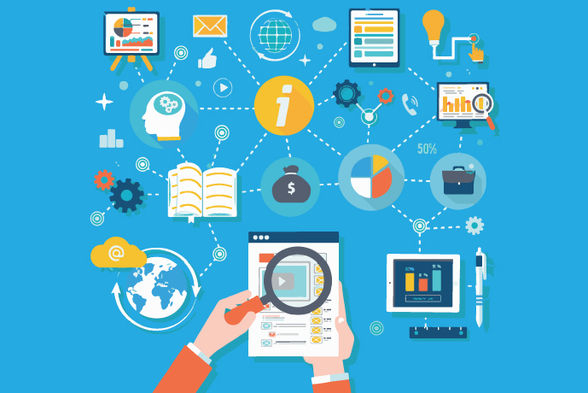Name the technology impacting everything you see and use. It is none other than Artificial Intelligence (AI). AI has impacted our lives, making a difference in how we use online platforms to do our work and receive services. With businesses adopting AI more and more, AI has been a driver of wealth creation with more personalized offers and services.
As AI gains traction, it emerges as a strategy of enterprises, tapping new opportunities every day. Although for some areas, like warehouse automation, where AI robots are in prolific use and killed manual jobs, the application scenarios of AI need not sound the death knell for the human workforce but the promise of a whole new phase of potential.
Whether as a student of IT, computer science or similar disciplines, you need to upskill in the most happening technology of today. You will want to learn as many aspects of AI as you can. How will AI transform businesses? What are the various use cases across industries? How can you apply your domain knowledge to leverage AI at your workplace? Does AI boost your Data Science skills? Can AI add value to your resume?
So go ahead and register for an AI course. Create a differentiator when you interview companies. Showcase your knowledge and skills in AI and land that much-coveted job.
What is the relevance of AI today?
What does AI mean for the future of business, workplace, and jobs? With the wide use of AI to solve business challenges, this has emerged as a pressing question.
With the potential of AI still untapped, opinions are divided over the ultimate impact on humankind. Will its transformational force impact the future of people at their workplace? If yes, what are the ways the workplace and workforce will be affected by AI implementation?
How AI is transforming the workplace
Some have apocalyptic leanings about the impact of AI on their jobs. For instance, AI-driven robots take jobs. Others are concerned with the ways AI is intruding into our everyday lives by collecting data and creating models that may alter the way we think and act.
The reality is AI impacts jobs by augmenting human effort and making tasks easy. As job roles are getting reconfigured, the job market is also changing, cutting swathes across similar jobs like Data Science.
With business processes changing and job roles changing to fit in the new ways of working with AI, entire departments are getting automated with IT operations driving business transformation to create a strategic differentiator in the market and a competitive edge.
What is the role of the workforce in this larger business context?
They play an even more significant role in driving this digital transformation across business processes and delivering AI capabilities to improve processes, operations, goods, and services. They are the driving force and game-changer in the larger context of things, as industries and businesses get disrupted by emerging technologies like AI, machine learning (ML), and deep learning.

The impact of AI on the workforce and the working culture
AI in the workplace often leads to the elimination of many jobs because of automation. At the same time, AI also creates new jobs to maintain a skilled workforce.
In the workplace, AI implementation shapes a whole new generation of skill sets, and salaries, across a wide range of use cases. With technological advances like augmented reality and IoT, new opportunities are also emerging for AI skills and certifications.
AI implementation in the workplace
As organizations continue their investments in AI, exploring the realm of the unknown and innovation, the ripple effect is felt across the workforce landscape where man and machine coexist to explore new capabilities for business transformation.
AI is not only changing the way companies run their business processes or sell their products and services but also shaping a working landscape with the transformational work culture.
Automation already brings in the benefits of error-free work in much lesser time.
As work gets done more efficiently, the workforce has more time and faces lesser rebukes and shake-ups for faulty work. Instead of AI-induced redundancies, we can expect the repositioning of job roles towards value-added work. New job roles emerge, such as Machine Learning Engineer and Data Scientist. The existing workforce will be interested in skilling up to be relevant in the workplace and gain promotions. With jobs created around AI-driven skills, the prospect of additional job creation has a positive impact on the morale of the workforce. Eventually, the existing workforce will be more flexible and open to taking instructions from robots and using AI-driven systems.
Impact on the workforce
As AI continues to drive innovation across industries and business types, its potential to solve business problems increases every day. Naturally, this creates more areas of job growth requiring deep domain knowledge.
Conversely, the limitations of AI also work in favor of the manual workforce. AI programs can solve only one problem or perform a single task for any model. They are often unable to respond in an out-of-programming-sandbox environment or the absence of sufficient data or data bias. It is where human intelligence is valuable. From manual data collection to critical human judgment and intelligence, the human workforce is capable of stepping in where machines and AI underperforms.
As the immense job-creation power of AI hits the market, both businesses and workers are upskilling to master the capabilities of AI algorithms. Fresh grads are also taking courses in AI to carve a career in the fastest-growing technology field that finds applications in every business and government organization.
With most businesses implementing AI for improved productivity and work efficiency, customer satisfaction, and innovative offerings, the impact of AI is getting stronger in many industries such as Healthcare, Banking and Financial Services, eCommerce, and Automotive.
Takeaway
The unexpected crisis brought about by COVID has accelerated the process of digital transformation and ushered in a slew of innovations. Businesses depended on machine-learning-enabled systems to ramp up production delivery during supply-chain operations. Many sectors like eCommerce implemented AI technologies to enhance online offers and delivery of goods and services. They turned to automation in the absence of the workforce due to lockdowns.
As companies revisit their business strategies and examine where technology best fits in with their plans, we can expect them to introduce a company culture that works alongside AI or enforces AO applications, creating a huge demand for an AI-knowledgeable workforce in the job market.








